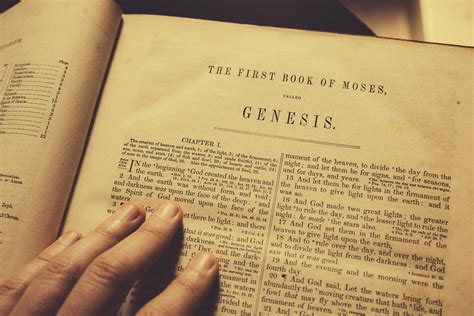I have often heard Galatians 3:24-25 quoted to demonstrate that we are no longer bound by the ordinances contained in the Old Testament. Unfortunately, many seem to misinterpret this passage thinking that the Old Testament is now unimportant. While it is very true that we are no longer under Old Testament law, it is not true that the Old Testament is an extraneous appendage to God’s revelation and is not relevant to our spiritual needs today. What people often miss in their understanding of Galatians 3:24-25 is the fact that the Old Testament “was our tutor to bring us to Christ…” and as such it is still fulfilling that purpose. A knowledge of the Old Testament is essential in developing a proper and complete understanding of Jesus Christ.
Jesus certainly understood this and used the Old Testament frequently to explain himself and his purpose: “”The Spirit of the Lord is upon me, for he has anointed me to bring Good News to the poor. He has sent me to proclaim that captives will be released, that the blind will see, that the oppressed will be set free, and that the time of the Lord’s favor has come.” He rolled up the scroll, handed it back to the attendant, and sat down. All eyes in the synagogue looked at him intently. Then he began to speak to them. “The Scripture you’ve just heard has been fulfilled this very day” (Luke 4:18-21). Jesus was initially quoting a passage out of the Old Testament prophet Isaiah. He used this passage to explain himself to the people who were listening to him. Perhaps the reason why so many don’t seem to properly appreciate Jesus as the Messiah is because they do not really understand that he was the fulfillment of a long series of promises and prophecies that date back thousands of years before Jesus was even born.
Paul also understood the essential nature of the Old Testament in bringing people to Christ: “Now when they had passed through Amphipolis and Apollonia, they came to Thessalonica, where there was a synagogue of the Jews. Then Paul, as his custom was, went in to them, and for three Sabbaths reasoned with them from the Scriptures, explaining and demonstrating that the Christ had to suffer and rise again from the dead, and saying, “This Jesus whom I preach to you is the Christ.” (Acts 17:1-3). Since the New Testament hadn’t been written yet, “the Scriptures” that Paul used were the Old Testament. Paul’s ability to prove that Jesus was indeed the savior was based on a proper understanding of what the Old Testament predicted about the Messiah. The fact that the Messiah would indeed suffer and die was something that the Jews of Pauls’ time typically rejected. They just couldn’t accept the idea of having a King ruling over an eternal and invincible kingdom who would be rejected, suffer and die. Paul was able to show his Jewish brethren that they were misinformed regarding the nature of the Messiah and the kingdom the Messiah would rule over. It was the Old Testament that Paul used to bring the Thessalonians to Christ even though the commandments of the Old Covenant were no longer binding.
We are no longer obligated to keep the commandments of the Old Testament, but it still serves us as a tutor. It still works to “bring us to Christ” and is a necessary and vital part of a proper understanding of the Messiah.

